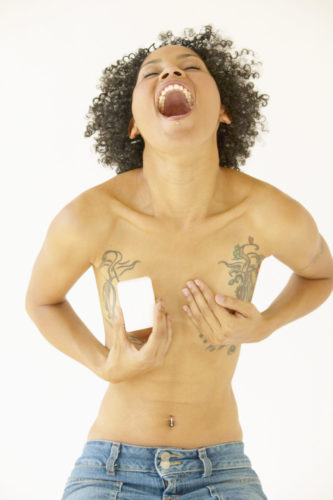This is what they would tell you about your body
Your nipples do more than just feed a baby—but you already knew that. What you may not know: Your nipples can clue you in to what’s going on in your body.
Here are 7 important things to know about your nipples:
- Skin changes could denote something serious. Sudden dimpling or puckering of the skin around or on your nipple—especially if it occurs around just one nipple—could be a warning sign of breast cancer.
- Hairy nipples are normal. Did you know the small bumps around the nipples are hair follicles? If dark hairs growing on your nipples looks unsightly to you, you can pluck, cut or wax them. But use care. And if the follicles become painful, grow in size, or are itchy and scaly, see your doctor. It could be a sign of infection.
- Exercise can chafe. To protect against this, get a well-fitting sports bra or use non-chafing balms or cover your nipples with round Band-Aids. But if notice redness, scaling, or itchiness when the extent of your exercise is lifting the TV remote, see your doctor. This could be a sign of eczema or Paget’s disease, a rare form of cancer involving the nipple and areola.
- Nipple discharge is often normal. A milky, bluish-green or clear discharge can occur in most women—even if they aren’t pregnant or breastfeeding—if the nipple is squeezed. If you’re not squeezing or if the discharge is bloody or coming from just one of your breasts, make an appointment with a health-care professional. The discharge could be caused by a harmless cyst, a benign growth or breast cancer.
- Nipple pain during breastfeeding is normal. Common complaints during breastfeeding, especially during the first few weeks: burning, cracked, throbbing or sore nipples. If the pain continues, consult a breastfeeding specialist because your baby may not be latching on properly. Engorged breasts and infections can also cause nipple pain.
- Nipples are erogenous zones. Researchers at Rutgers University found the sensation from nipple stimulation travels to the same pleasure centers of the brain as sensations from the vagina, clitoris and cervix. Got a pierced nipple? You could experience loss of sensation due to nerve damage.
- Don’t worry about inverted nipples. About 15 percent of women have inverted nipples from birth; connective tissue retracts the nipple inward. A relatively minor surgical procedure can correct it in about an hour. But if your outward-facing nipples suddenly turn inward, schedule an appointment right away.





